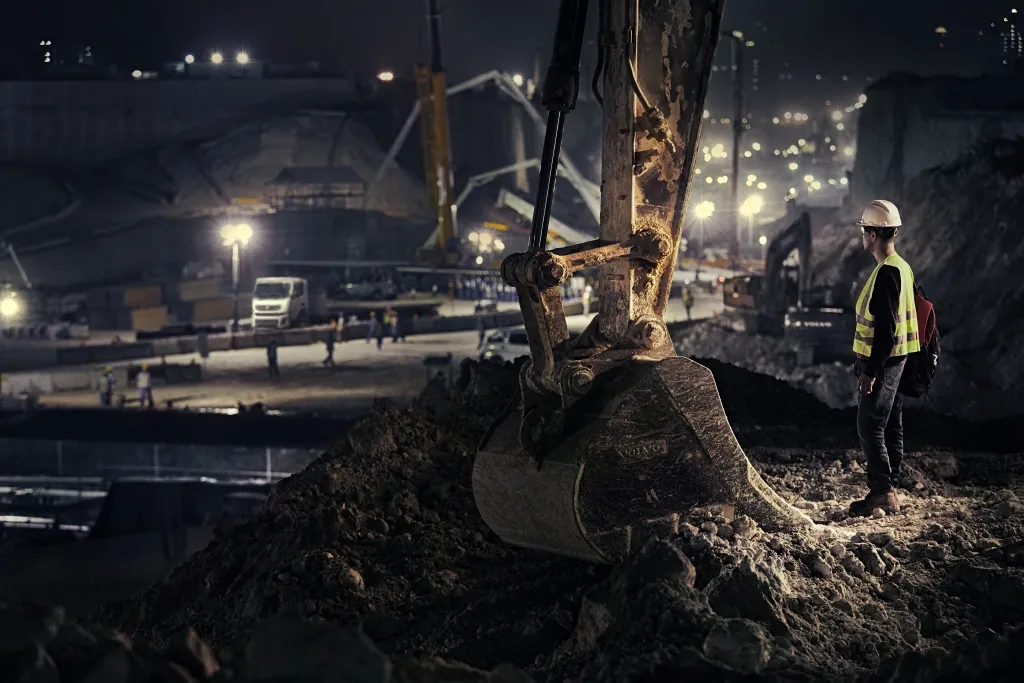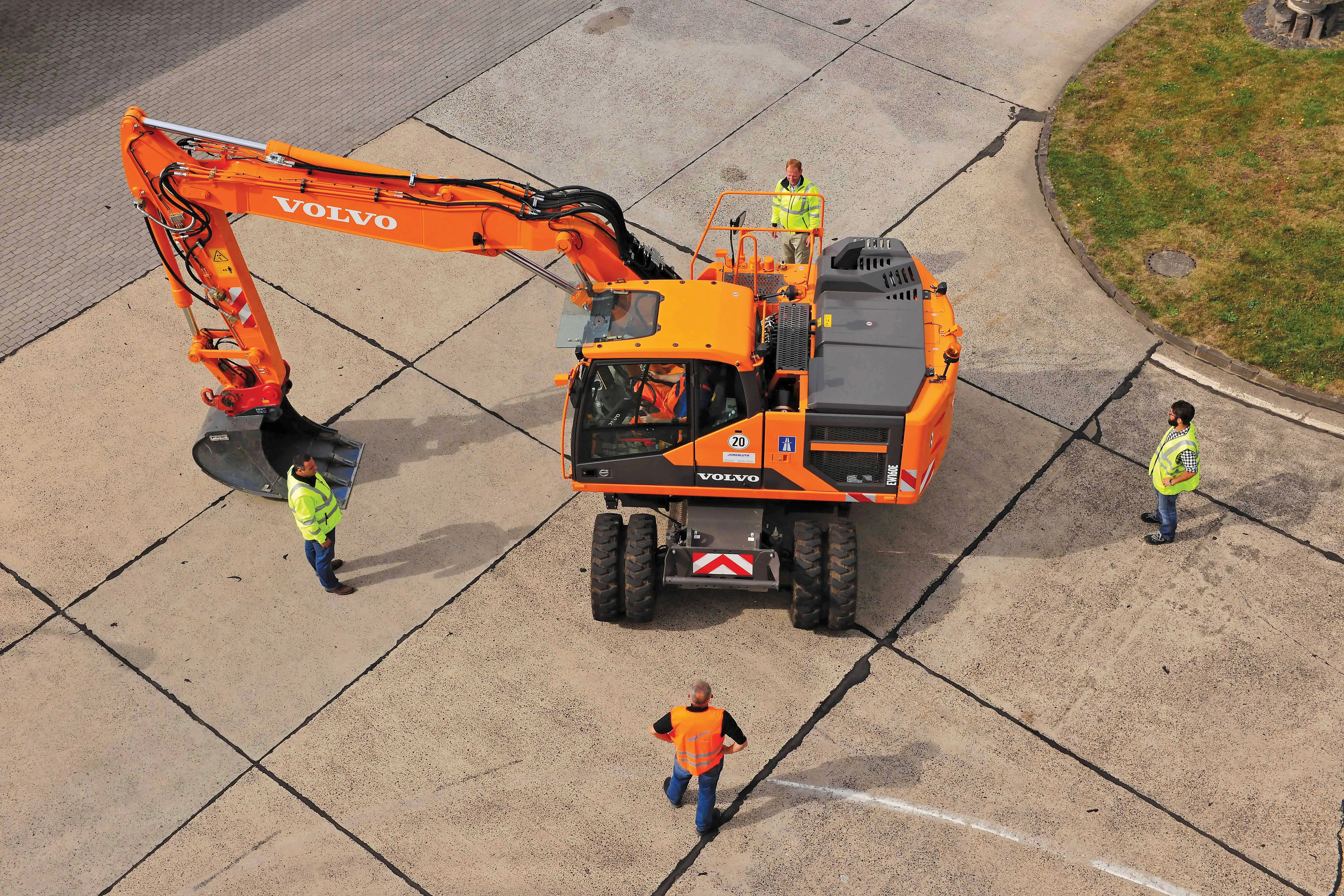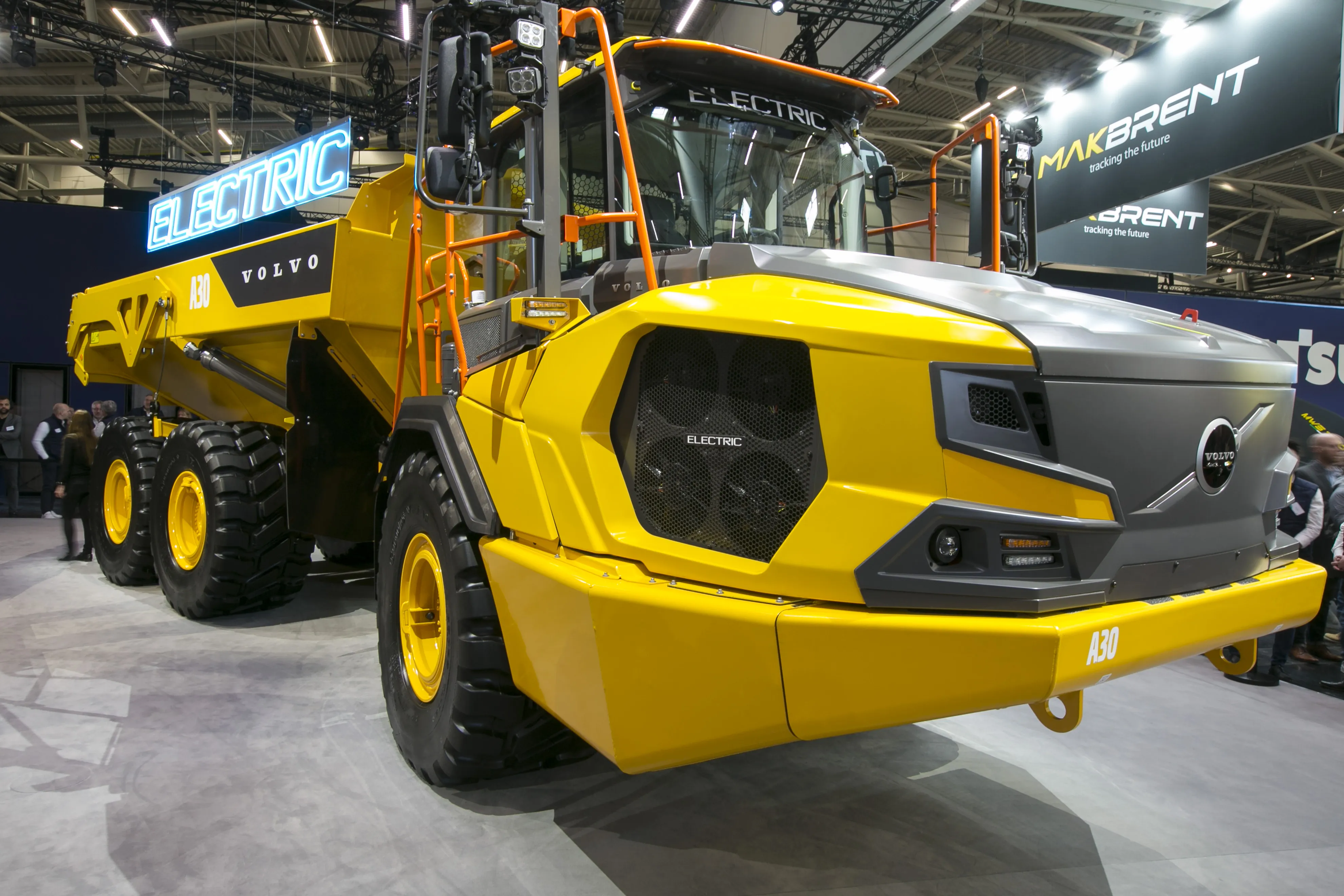
Construction machines from
The equipment is being used to build the sustainable city of Lusail, located to the north of Doha, Qatar. In temperatures reaching up to 50°C, over 240 Volvo machines have been hard at work, coping with 24-hour days, based on a three-shift cycle building a city designed to support 250,000 residents. Part of Qatar’s Vision 2030, which aims to transform the Middle Eastern state into a society capable of achieving sustainable development by 2030, Lusail City represents an ambitious vision for the future of Qatar. Turning this vision into a reality, Lusail is being fitted with a district cooling system, featuring 175km of piping. This will be one of the world’s largest central cooling systems.
This will save an estimated 200,000tonnes of carbon dioxide emissions annually, limiting the harmful effects on the ozone layer. Moreover, a 24km waste pipe is being laid underneath the city, as an advanced and efficient way of disposing of human waste to recycling and treatment plants outside of the city.
To encourage residents to adopt a sustainable lifestyle, a light railway, water-taxi system and underground pedestrian tunnels are also being constructed, promoting alternative means of travel. Lusail has been under construction since 2009, and more than 45,000 workers are on site/day. A number of Volvo CE excavators, ADTs, wheeled loaders and soil compactors are on site daily, clearing room for foundations and underground tunnels. Although digging through the porous sandstone is tough work, it is the intense heat that provides the biggest challenge. “All machines must be equipped with air-conditioning units and operators are instructed to take regular breaks to prevent fatigue and heatstroke,” said Hadi Kaii, machine owner and Volvo CE customer at EIB Qatar.








